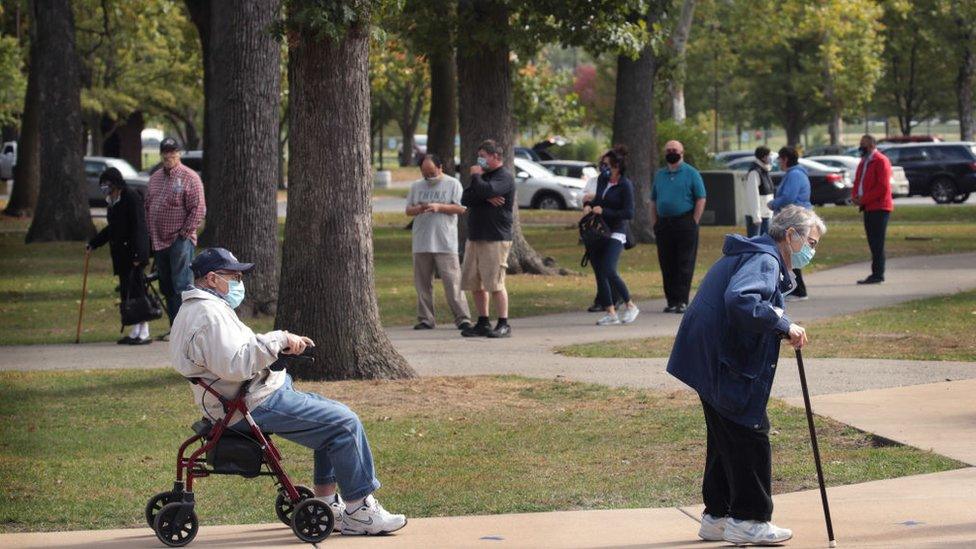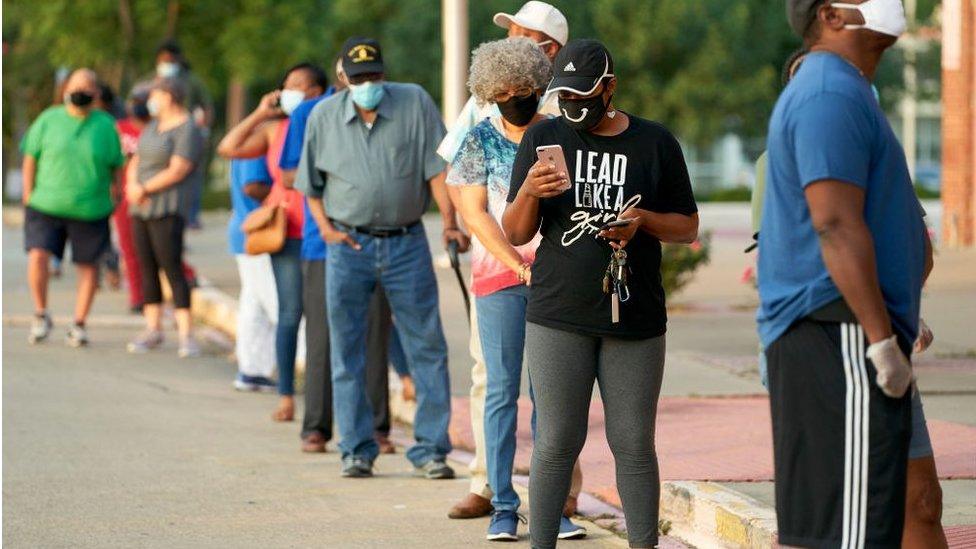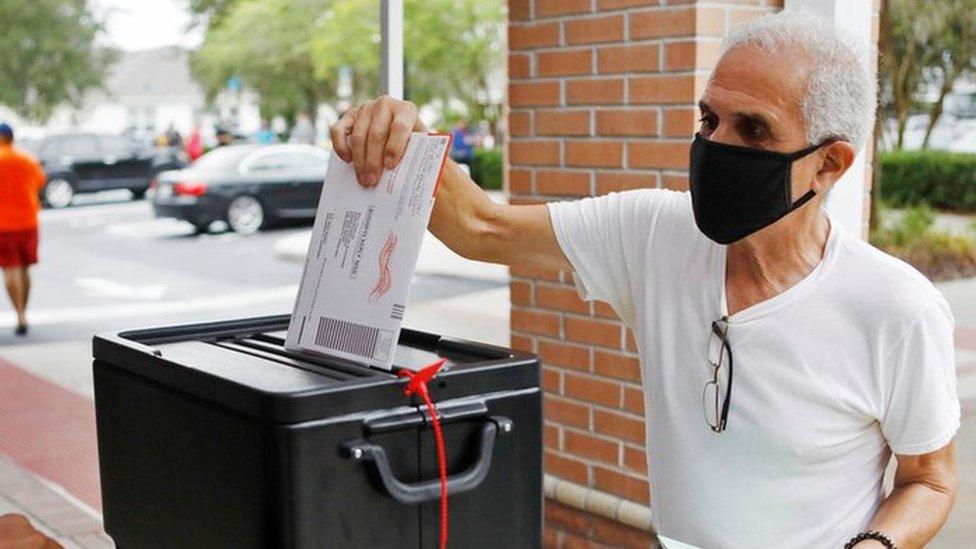US election 2020: Early voting records smashed amid enthusiasm wave
- Published

Pensioners queuing to vote in Indiana earlier this month
State election officials across the US are reporting record numbers of voters casting their ballots ahead of election day on 3 November.
More than 29 million had voted early by Monday, either in person or by mail, according to the US Election Project.
At the same point in the 2016 race, about 6m votes had been cast.
Experts say the surge in early voting correlates to the coronavirus pandemic, which has caused many people to seek alternatives to election day voting.
On Tuesday, Texas, a state that has relatively tight restrictions on who can qualify for postal voting, set a record for most ballots cast on the first day of early voting.
On 12 October, the Columbus Day federal holiday, officials in Georgia reported 126,876 votes cast - also a state record.
In Ohio, a crucial swing state, more than 2.3 million postal ballots have been requested, double the figure in 2016.
Early voters have formed long queues in several states across the US
Reports indicate that registered Democrats have so far outvoted registered Republicans - casting more than double the number of ballots. And of these early voting Democrats, women and black Americans are voting in particularly high numbers. Some are motivated by dislike for Donald Trump, while others have been energised by racial justice protests throughout the summer following the police killing of George Floyd in Minnesota.
But this early advantage does not mean that Democrats can already claim victory. Republicans, who claim postal voting is vulnerable to fraud, say Democrats may win the early vote, but that Republicans will show up in large numbers on election day.
According to a 2017 study by the Brennan Center for Justice, the rate of voting fraud overall in the US is between 0.00004% and 0.0009%.
Republicans have also made gains in voter registration efforts in the key states of Florida, North Carolina and Pennsylvania, though Democrats still lead overall.
In Florida, that registration margin has narrowed to a little over 134,000 voters - less than 1%. Mr Trump won Florida by just under 113,000 votes in 2016.
These states are known as battlegrounds in the election as voters are more likely to switch parties in these regions than elsewhere in the country. As a result, states like Florida are where the campaigns tend to focus their efforts.
The enormous numbers of voters have led to long lines, with some people waiting for up to 11 hours for an opportunity to vote.
Younger people, who historically have been difficult to get to the polls, appear to be turning out in larger numbers this year. The youth vote may be the highest its been since 2008 for the election of Barack Obama - the country's first black president.
A recent survey by Axios found that four in 10 university students said they planned to protest if Mr Trump wins. Six in 10 said they would shame friends who could vote but choose not to.
By contrast, only 3% of surveyed students said they would protest if Joe Biden was elected.



What questions do you have about the US election?
In just three weeks, Americans head to the polls to cast their vote for Donald Trump or Joe Biden. What questions do you have for American voters? Submit your questions here and we'll put them to our voter panel.
In some cases, your question will be published, displaying your name, age and location as you provide it, unless you state otherwise. Your contact details will never be published. Please ensure you have read our terms & conditions and privacy policy.
- Published13 October 2020

- Published6 November 2020
